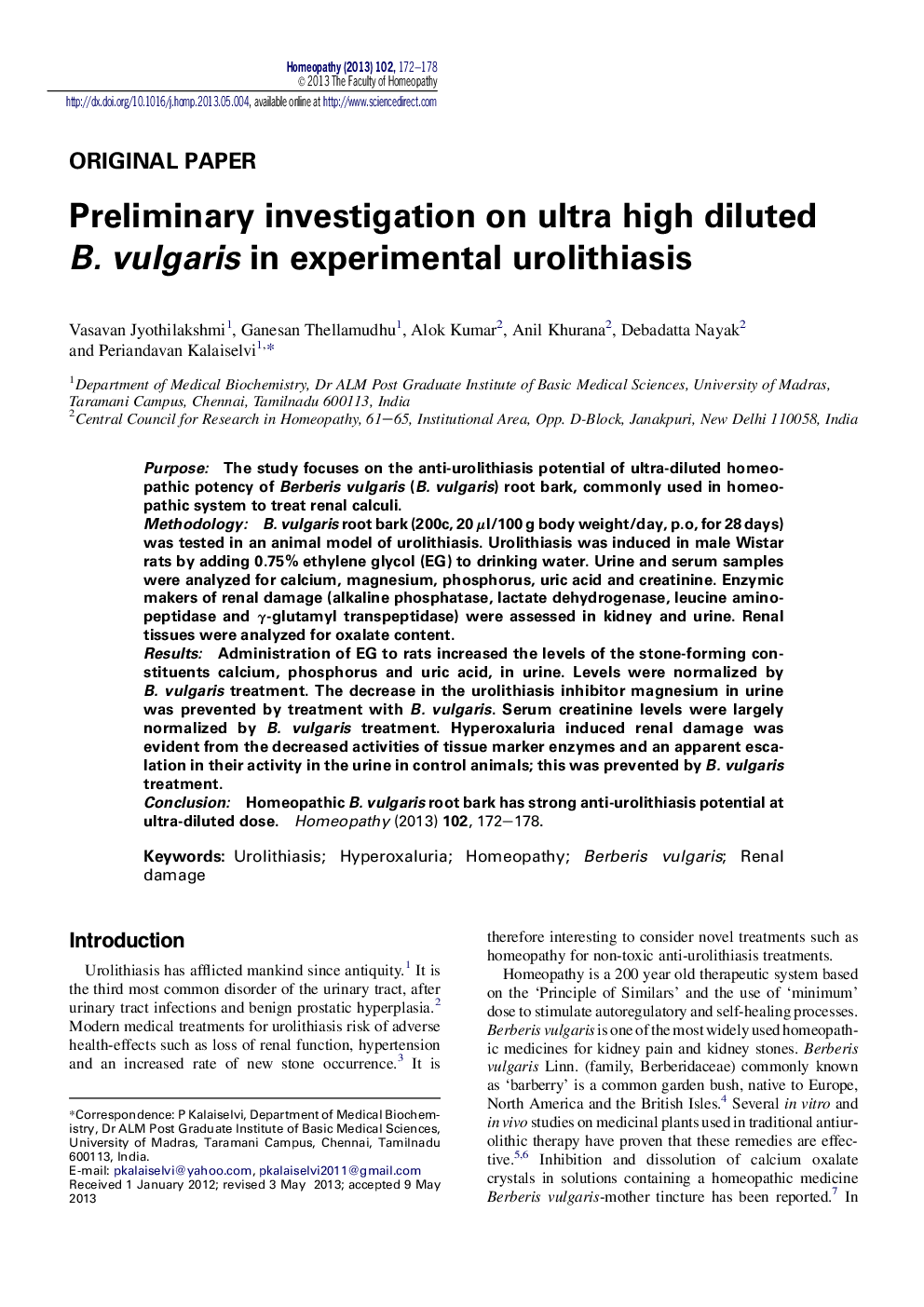| Article ID | Journal | Published Year | Pages | File Type |
|---|---|---|---|---|
| 2629939 | Homeopathy | 2013 | 7 Pages |
PurposeThe study focuses on the anti-urolithiasis potential of ultra-diluted homeopathic potency of Berberis vulgaris (B. vulgaris) root bark, commonly used in homeopathic system to treat renal calculi.MethodologyB. vulgaris root bark (200c, 20 μl/100 g body weight/day, p.o, for 28 days) was tested in an animal model of urolithiasis. Urolithiasis was induced in male Wistar rats by adding 0.75% ethylene glycol (EG) to drinking water. Urine and serum samples were analyzed for calcium, magnesium, phosphorus, uric acid and creatinine. Enzymic makers of renal damage (alkaline phosphatase, lactate dehydrogenase, leucine aminopeptidase and γ-glutamyl transpeptidase) were assessed in kidney and urine. Renal tissues were analyzed for oxalate content.ResultsAdministration of EG to rats increased the levels of the stone-forming constituents calcium, phosphorus and uric acid, in urine. Levels were normalized by B. vulgaris treatment. The decrease in the urolithiasis inhibitor magnesium in urine was prevented by treatment with B. vulgaris. Serum creatinine levels were largely normalized by B. vulgaris treatment. Hyperoxaluria induced renal damage was evident from the decreased activities of tissue marker enzymes and an apparent escalation in their activity in the urine in control animals; this was prevented by B. vulgaris treatment.ConclusionHomeopathic B. vulgaris root bark has strong anti-urolithiasis potential at ultra-diluted dose.
